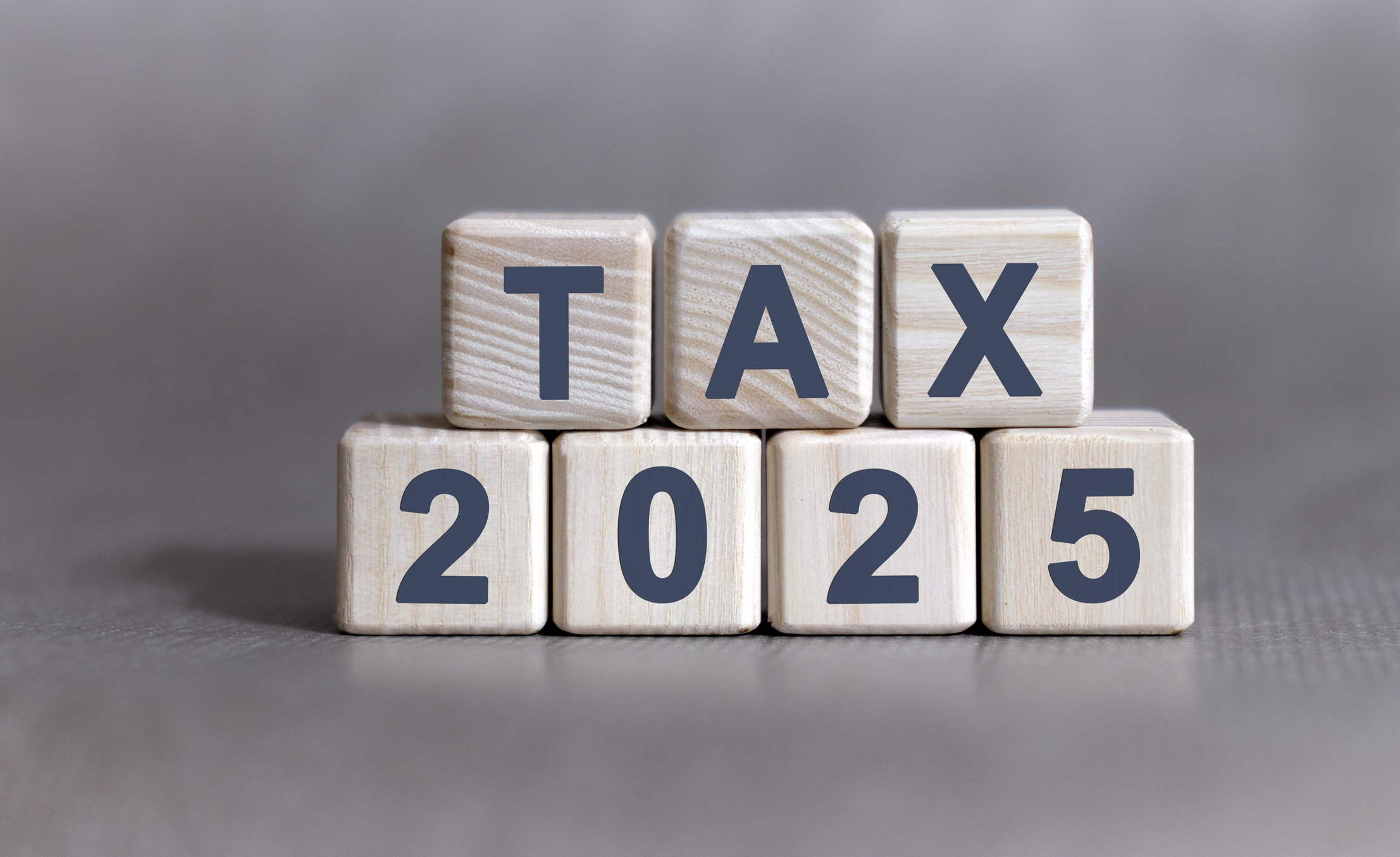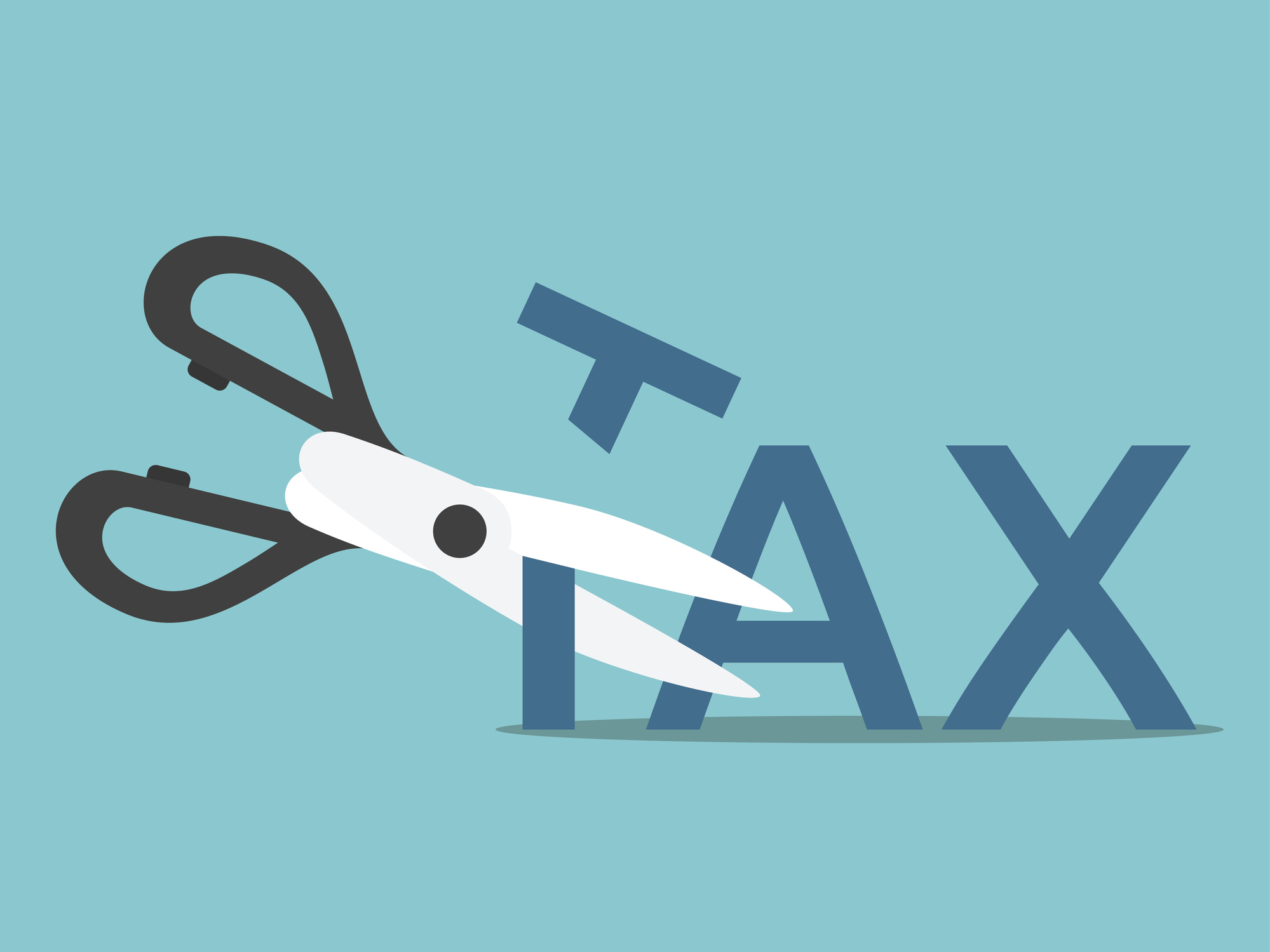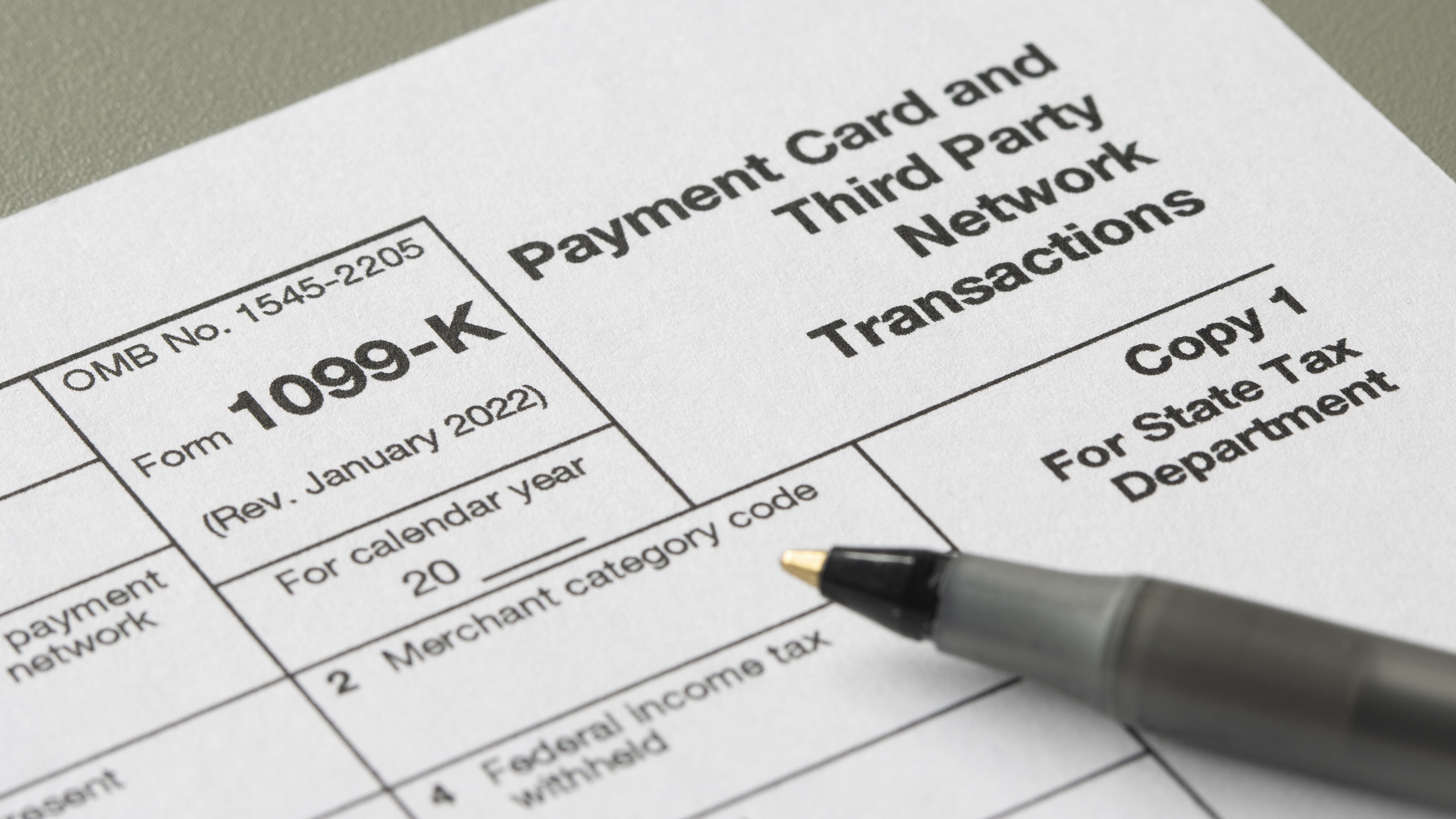
Hi! Welcome to Kiplinger's 2025 tax season live blog. Since the IRS started accepting tax returns on January 27, we'll provide updates, tips, analysis, and essential information to help you navigate the tax filing process.
Stay tuned for daily posts from our tax team this week (Kelley, senior tax editor, and Kiplinger tax writers Gabriella and Kate) covering everything from who needs to file to potential future tax policy changes that could impact your wallet.
Day 1 Recap: On Monday, we discussed the start of tax season and the state of play with the IRS under a new presidential administration. Check out our posts on the standard deduction, ways to file taxes for free, digital tax records, the impact of tariffs, and a new U.S. Treasury Secretary.
Day 2 Recap: On Tuesday, we discussed President Trump's decision to pause federal aid, which a federal judge has since paused. We also covered Trump’s latest proposal to eliminate income tax, provided important tax reminders for those with student loan debt, and addressed whether you might receive an IRS stimulus check of up to $1,400 this week.
Day 3 Recap: On Wednesday, we discussed important tax benefits, including the Earned Income Tax Credit (EITC) and the Child Tax Credit (CTC). We also reviewed the new reporting thresholds for Form 1099-K and whether you might be one of the online sellers receiving this form this year. Last but not least, we talked about different types of income that the IRS doesn’t tax.
The First Day of Tax Season 2025

As of today, January 27, the IRS has opened its doors for the 2025 tax season. And this year brings notable shifts that will impact how millions in the U.S. file their taxes.
For example, the IRS has expanded its Direct File program to allow taxpayers in 25 states to complete returns without traditional preparation costs. That could save millions of households time and money. (The tax agency estimates 30 million taxpayers could participate)
President Trump's return to the White House has prompted significant shifts. On inauguration day, the former IRS commissioner Danny Werfel stepped down. As the tax agency awaits confirmation of Trump’s Commissioner pick (former Congressman Billy Long), it must deal with a hiring freeze and reduced funding.
What does this mean practically? The core tax season process should remain the same: gathering documents, understanding tax deductions and credits, and eventually meeting the April 15 deadline (if you don’t have a valid tax extension).
However, the federal tax landscape is evolving, and as a new Congress begins to address tax policy, there is uncertainty about what tax bills will look like beyond this year.
For those feeling anxious about the changes, take a deep breath. Focus on the fundamentals of good tax preparation: good record keeping, understanding your income streams, leveraging tax breaks you’re eligible for, and seeking professional advice when and if you need it.
Welcome to Tax Season 2025.
As mentioned, we'll be live blogging all week, offering tips, analysis, IRS updates and related news and information. In the meantime, here are some resources to get you started.
- Not Ready to File Taxes? Eight Things to Do to Prepare
- When are Taxes Due in 2025? Tax Deadlines By Month
Tax Changes to Know

Every year, before you file your 2024 tax return, there are significant federal tax changes you need to know. This tax season is no different.
So, we’ve compiled a list of key IRS changes that could impact your 2024 tax return — from the child tax credit and 1099k thresholds to extended tax deadlines in states affected by devastating natural disasters.
See: Tax Season 2025 Is Here: Seven IRS Changes to Know Before You File
Also, if you aren’t sure where to begin to prepare for tax season or wonder if you even need to file a return this year, we’ve got you covered with the following guides:
Who is Required to File a Tax Return
Does Your Child Need to File a Tax Return?
- Kelley
A Bit of News on Tariffs

Among President Donald Trump’s wave of executive orders signed on day one of his second term, one major campaign promise was missing — imposing universal tariffs on all imports.
What’s imminent, however, is how Trump’s sweeping would-be tariffs will impact your wallet as a consumer in the United States. Economists warn that tariffs on China, Mexico, and Canada can impact the cost of everyday essentials like food, gas, and clothing.
Here’s where you could see prices rise sooner than you think.
Food, Gas Prices to Spike if Trump Levies 25% Tariffs on Canada and Mexico
Free Tax...Help!

Just a reminder that there are a bunch of ways to file taxes for free this filing season. Here are a few services that the IRS offers:
- Free File is open to low-to-middle-income taxpayers with an AGI of $84,000 (or less).
- Direct File is open to some taxpayers in 25 states with an AGI of up to $250,000.
- The MIL (Military One Source) program (if you’re in the military) or the
- The VITA (Volunteer Income Tax Assistance) program (if you make $67,000 or less, you can meet with an IRS partner or volunteer staff who can provide tax counseling and preparation services)
There are also some free filing options offered by tax prep companies. Just double-check their eligibility rules.
Related: Ways to File Taxes for Free in 2025
...Don’t know what your “AGI” is? No problem.
Adjusted gross income (AGI) is your total income minus specific deductions. It's the starting point for calculating your tax bill before applying standard or itemized deductions designed to give the IRS a clearer picture of your taxable income.
To learn more, check out Kiplinger’s take on AGI, and then head over to our guide to Federal Tax Brackets and Income Tax Rates for more information regarding your 2024 tax rate.
Note: Your marginal tax rate is the percentage you pay on your last dollar earned, not your entire income. Think of it like a staircase: as you climb to higher income levels, only the dollars on each new step are taxed at that step's rate.
Plus, we have everything you need to know about the standard deduction and a load of tax credits and deductions you might be eligible for. (We’ll talk more about some of those tax breaks this week.)
Fun Fact: Why Most People Don't Itemize Deductions

Did you know the standard deduction has become the choice for nearly 90% of U.S. taxpayers? This surge in popularity isn’t an accident. The Tax Cuts and Jobs Act (TCJA) of 2017 (also known as the “Trump tax cuts”) nearly doubled the standard deduction, and that higher deduction is still in place now.
Data show that before the TCJA, about 30% of taxpayers itemized their deductions. After its implementation, that number plummeted to just under 14%. Congress will have to consider whether to extend the higher base standard deduction amount as it weighs new tax policy.
For the 2024 tax year, the standard deduction amounts are:
- Single filers: $14,600
- Married couples filing jointly: $29,2002
- Head of household filers: $21,900
For more information, see Kiplinger’s guide: What’s the Standard Deduction for 2024 and 2025?
- Kelley
Go Digital This Tax Season

The IRS is expecting more than 140 million individual tax returns to be filed by April 15, and the last thing you want is for your return to be delayed or lost in the mix.
As you prepare to file your taxes, storing your tax forms and supporting documents in a digital folder can help you file a secure and accurate tax return. Depending on your tax situation, you may collect receipts for expenses you’d like to deduct or claim as credit.
To get started, some documents you should consider digitizing include:
- W-2 forms from employers
- 1099 forms for freelance or contract work
- Paystubs or unemployment compensation
- Receipts for deductible expenses
- Investment records or bank statements
File digitally. As we’ve mentioned, IRS Direct File is available in 25 states, allowing taxpayers to file for free and directly to the IRS. Meanwhile, if you earned less than $84,000 in 2024, consider filing with IRS Free File. You can also select a direct deposit and receive a refund quicker if you are entitled to one
Avoid accidental loss. Digitizing your tax records and supporting documents can help you avoid the risk of losing crucial paperwork in the event of a natural disaster.
Consider the political landscape. The IRS has recently overcome years of challenges due to old tech, limited staff, and paper backlogs. The Trump administration is halting hiring new staff and considering cutting back on IRS funding. These changes may lead to potential tax processing delays, particularly for paper returns or those that need manual review.
- Gabriella
Related:
Some News: Scott Bessent Becomes New Treasury Secretary

The Senate confirmed Scott Bessent as the new U.S. Treasury Secretary on January 27, with a vote of 68-29. Bessent, known for his work in the hedge fund industry, is the 79th Treasury Secretary, succeeding Janet Yellen.
During his confirmation hearing, Bessent outlined several key focus areas, some of which center on tax policy.
- Addressing the upcoming expiration of certain Tax Cuts and Jobs Act (TCJA) provisions
- Managing the national debt and debt ceiling negotiations
- Potential reforms to the IRS
- Navigating international trade relationships, particularly with China
As Bessent takes on his new role in the Trump administration, his decisions and policies will likely significantly impact the U.S. economy.
- Kelley
Trump Wants to Freeze All Federal Aid

The White House Office of Management and Budget (OMB) has issued a memo pausing all federal grants and loans, effective January 28, 2025. While not directly targeting taxes, this unexpected and sweeping move could significantly affect the tax landscape.
Just before the 5 pm deadline when the pause was supposed to go into effect, a federal judge paused its implementation until Feb. 3. The situation is developing.
The memo came in addition to executive orders already issued freezing federal hiring for 90 days (indefinitely for the IRS), requiring a return to the office for many federal workers, and changing processes for reclassifying federal workers.
Key points of the memo:
- Halts distribution of federal financial assistance
- Excludes Social Security, Medicare, and Medicaid benefits
- Federal agencies must report on affected programs by February 10, 2025 (this will likely be impacted by the judge's order.)
Potential tax impacts:
- IRS Operations: A hiring freeze at the IRS could slow tax return processing and impact customer service.
- Tax Credits: Uncertainty around grant-supported tax credit programs, especially in clean energy and electric vehicles.
- Tax Guidance: Possible delays in issuing guidance on recent tax law changes.
- Program Changes: Tax-related federal programs could be affected, potentially altering available incentives and credits.
Notably, the memo doesn't specify an end date for this "temporary" pause, adding another layer of uncertainty. And it's hard to say what will happen from a legal standpoint.
As we navigate this open-ended situation, keep an eye on any IRS updates and consider consulting a tax or finance professional if you have specific concerns about impacts on your situation.
Related:
What Trump's Federal Hiring Freeze Means for Your Tax Return
Is the EV Tax Credit Going Away?
A Reminder for Those With Student Loan Debt

If you’re paying off a student loan, you could be eligible for an up to $2,500 tax break for student loan interest, among other education tax credits and deductions.
Some education-related tax breaks hinge on "qualified education expenses," including tuition and fees, room and board, and loans for school supplies, like books. But in some cases, the combined total could save you thousands.
Why this matters. Data show that more than 50% of students graduate with student loans, with the average student loan payment of around $300.
On top of that financial burden, there may also be a new challenge for some students: Parts of the SAVE plan (a federal student loan repayment program) are currently being contested in a federal lawsuit.
For more information on how you can save tax dollars on your student debt and to learn about the taxability of recently forgiven student loans, check out these Kiplinger reports:
Don't Miss This $2,500 Tax Break for Paying Your Student Loan
How to Get a 401(k) Match for Your Student Loan Payment
Will You Owe Taxes on Your Recently Forgiven Student Loan?
A Little-Known Way to Help Pay Your Student Loan
In the News...No More Income Tax?

Donald Trump has once again stirred the debate on tax policy, recently advocating for eliminating income tax and returning to a tariff-based revenue system.
"We're going back to the old days. No income tax, just tariffs. It worked before, and it'll work again," Trump said during a January 25 event in Las Vegas, Nevada.
The remarks, which come not long after a Republican lawmaker separately proposed to abolish the IRS and rewrite that tax code, reignited discussions about fundamental changes to the U.S. tax system.
(It's worth noting that critics argue that heavy reliance on tariffs could lead to trade wars, increased consumer prices, and potential economic instability.)
To learn more about this latest tax suggestion, see: Hello Tariffs? What's Wrong With Trump's Plan to Abolish Income Tax.
- Kelley
$1,400 IRS Stimulus Check?

Keep your eyes peeled for some extra cash flow coming your way via mailbox or a direct deposit.
As Kiplinger reported, the IRS is sending a million individuals a pandemic stimulus check worth up to $1,400 per taxpayer. The tax agency said it would send $2.4 billion in payments, which should be delivered by the end of this month (January).
The checks in question are from the 2021 Recovery Rebate Credit, a refundable credit for folks who did not receive one or more Economic Impact Payments (EIP) or stimulus checks.
Why such a delay? The IRS has been reviewing internal data to identify eligible taxpayers who filed a return but didn’t claim the credit. During the pandemic, the tax agency was short-staffed and faced many challenges as it dug itself out of paper backlogs.
Most taxpayers have already received their credit. However, some have not yet filed their 2021 tax returns and may qualify for a refund. If you’re in that situation, you’ll need to file that prior return by April 15.
For all the details, see our story, IRS is Sending Up to $1,400 to One Million People: Are You Eligible?
- Gabriella
Don't Overlook This Tax Break

This year marks the 50th anniversary of the Earned Income Tax Credit (EITC), and there’s no better way to celebrate than by claiming your credit.
The EITC is a refundable tax credit designed for low- and moderate-income workers. If you qualify, you can use the credit to reduce your tax liability and may get a refund.
Approximately 23 million workers and families received $64 billion in EITC last year. Nationwide, the average tax credit amount was $2,743 —some good news: the Earned Income Tax Credit is expected to be slightly higher this year.
- To qualify, you must have an earned income under $66,819 or an investment income under $11,600 last year.
- For the 2024 tax year (taxes generally filed in early 2025), the EITC is worth up to $4,213 if you have only one qualifying child. That figure increases to $6,960 for two kids and up to $7,830 for three or more eligible children.
- You don’t have to have children to qualify. Single taxpayers with an income under $18,591 ($25,551 for married filing jointly) qualify for a maximum EITC of $632.
Lastly, 31 states, plus the District of Columbia and Puerto Rico, currently have their state or local government version of the earned income tax credit in addition to the federal EITC.
Also, watch for EITC Awareness Day this Friday, January 31, 2025. The IRS in collaboration with community organizations, elected officials, schools, employers, and other partners, offers taxpayers free information and help to claim the EITC and other family tax credits.
For more details, see: Earned Income Tax Credit: How Much Is It?
Also: 2025 Family Tax Credits: Four IRS Changes That Can Save You Money
The Child Tax Credit: A Boost for Families

Since 1997, the Child Tax Credit (CTC) has supported millions of families. What began as a $400 per child credit now provides up to $2,000 per eligible child, reaching approximately 46 million families - more than the population of Spain.
The CTC's impact is significant:
- It helps lift nearly 2 million children out of poverty each year, comparable to emptying a city the size of Houston.
- By providing financial support, the credit creates opportunities and stability for families across the United States.
For the 2024 tax year, the maximum CTC remains $2,000 per qualifying child under 17, but the refundable portion has increased from $1,600 last year to $1,700 for this tax filing season.
Families with lower tax liabilities can receive up to $1,700 back as a refund, even if they owe no taxes.
Learn more: Child Tax Credit 2024 and 2025: How Much Is It?
Are You Receiving a New Tax Form This Year?

Here’s some news for gig workers, eBay sellers, and part-time Etsy vendors: You may get a tax form this year that you haven’t received before.
The IRS instituted a new 1099-K reporting change for this 2025 filing season (2024 tax returns). Previously, taxpayers received Form 1099-K when they reached $20,000 and 200 online transactions. Now, the threshold is just $5,000. This means more casual sellers of goods and services may receive this tax form for the first time.
While the new lower threshold doesn’t change the taxability of these items, you should review your Form 1099-K to ensure proper classification of what is taxable income.
For example, your form could accidentally include nontaxable transactions to friends and family. Items like splitting a meal, gifting birthday money, and like-personal transactions shouldn't trigger tax.
For more information, check out Kiplinger’s report 1099-K Reporting Change for the 2025 Tax Season.
Tax-Free Income: What the IRS Doesn't Touch

It can often feel like the IRS taxes most of your hard-earned money, but thankfully, certain types of income are nontaxable in the eyes of the federal tax agency. And those exceptions can significantly impact your financial strategy and tax planning.
Some examples? Gifts and inheritances, life insurance proceeds, and interest from municipal bonds. Qualified distributions from Roth retirement accounts also provide tax-free benefits in retirement. Additionally, profits from the sale of a home may be exempt from tax under specific conditions. There are more.
See: Common Types of Nontaxable Income to Know
While these and some other opportunities for tax-free income exist, remember that tax laws are complex, and each exemption has its own set of rules and qualifications.
Check out our summary on several types of income the IRS doesn’t tax. And, as always, consult a qualified tax professional who can help you navigate what in your financial life is and isn’t taxable.
- Kelley
Learn More:
Types of Income the IRS Doesn’t Tax: What to Know for 2025
How the IRS Taxes Retirement Income
Capital Gains Tax Exclusion for Home Sales
Don’t Forget QCDs in Your 2025 Tax Plan

When you are planning out your required minimum distributions (RMDs), remember to take advantage of a special tax consideration: Qualified Charitable Distributions.
RMDs are the minimum amount someone 73 or older must withdraw yearly from their retirement savings plan. A QCD is a donated portion of your RMD and can be made by anyone 70 ½ or older.
In addition to helping a qualified charity, a QCD may help you save on 2025 income tax through potentially:
- Lowering the amount of tax you owe
- Reducing high taxes on Social Security benefits
- Lowering Medicare premiums
QCDs aren’t itemized deductions, so you can take full advantage of this tax benefit while still claiming the standard deduction.
Ready to learn more? Check out Kiplinger’s reports:
What Is a Qualified Charitable Distribution (QCD)?
RMDs: Key Points and What to Know
Navigating IRS 1099 Forms

If you have a tax paper from someone other than your employer, you may have received a 1099. But what does the form mean, and why did you receive it?
IRS Form 1099 is informational. This means that taxes may not be due, but you should report the information (however small) anyway. Not only does this make your return more accurate, you can decrease the risk of getting audited by the IRS and potentially avoid any penalties or other tax fees associated with underfiling.
Check out our guide to the many types of Form 1099, so you can get off to a good start this filing season.
IRS 1099 Forms: What to Know About All 22 of Them
- Kate







